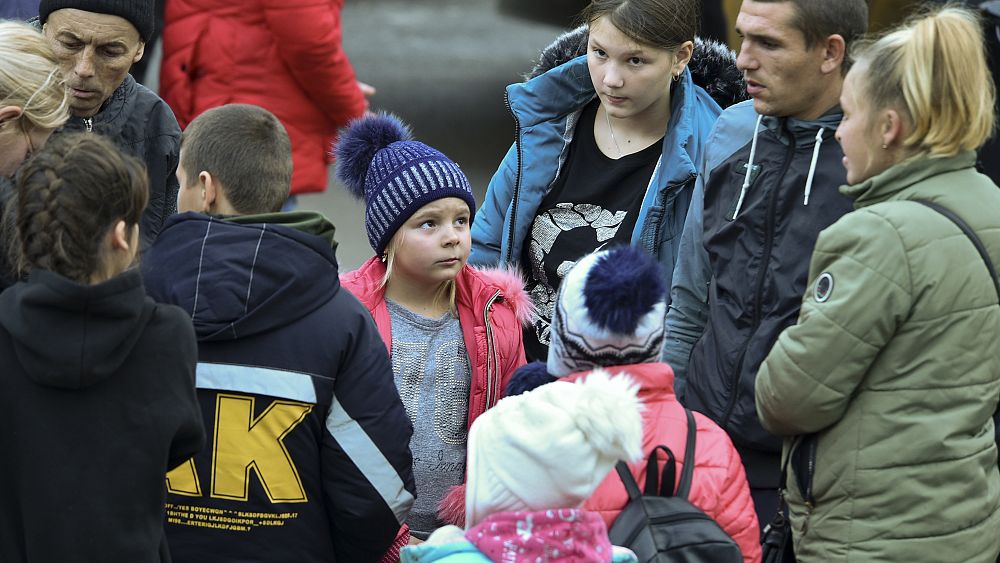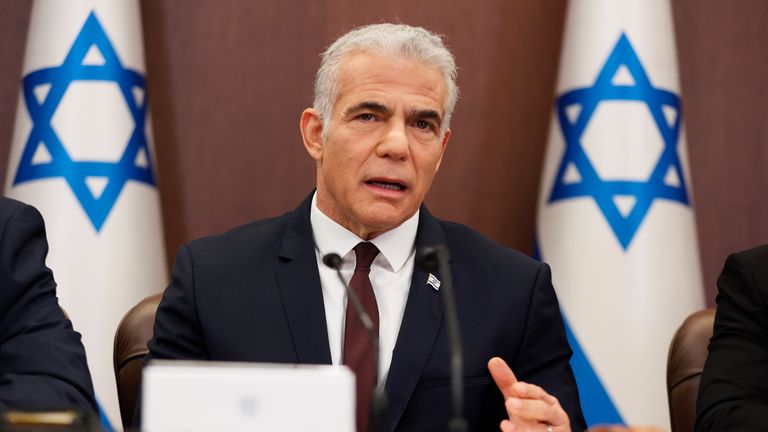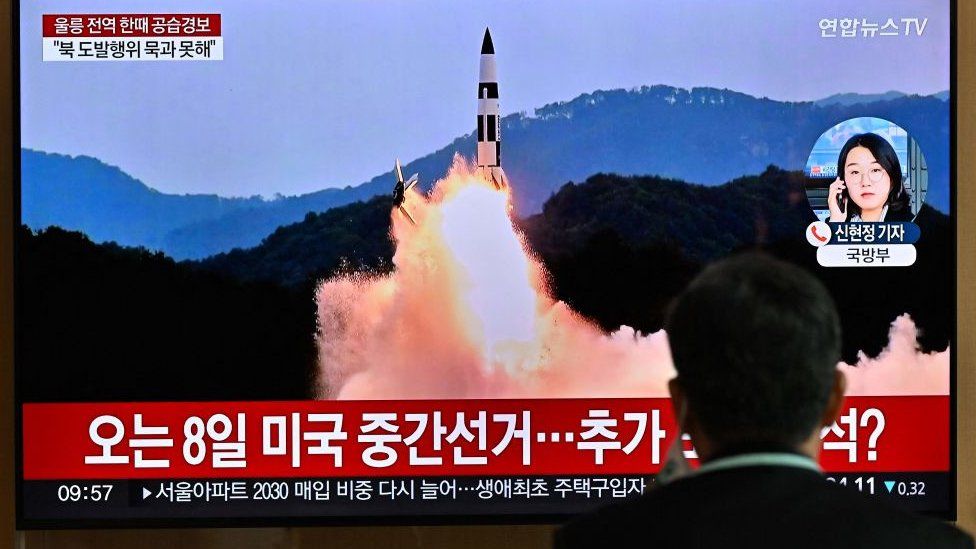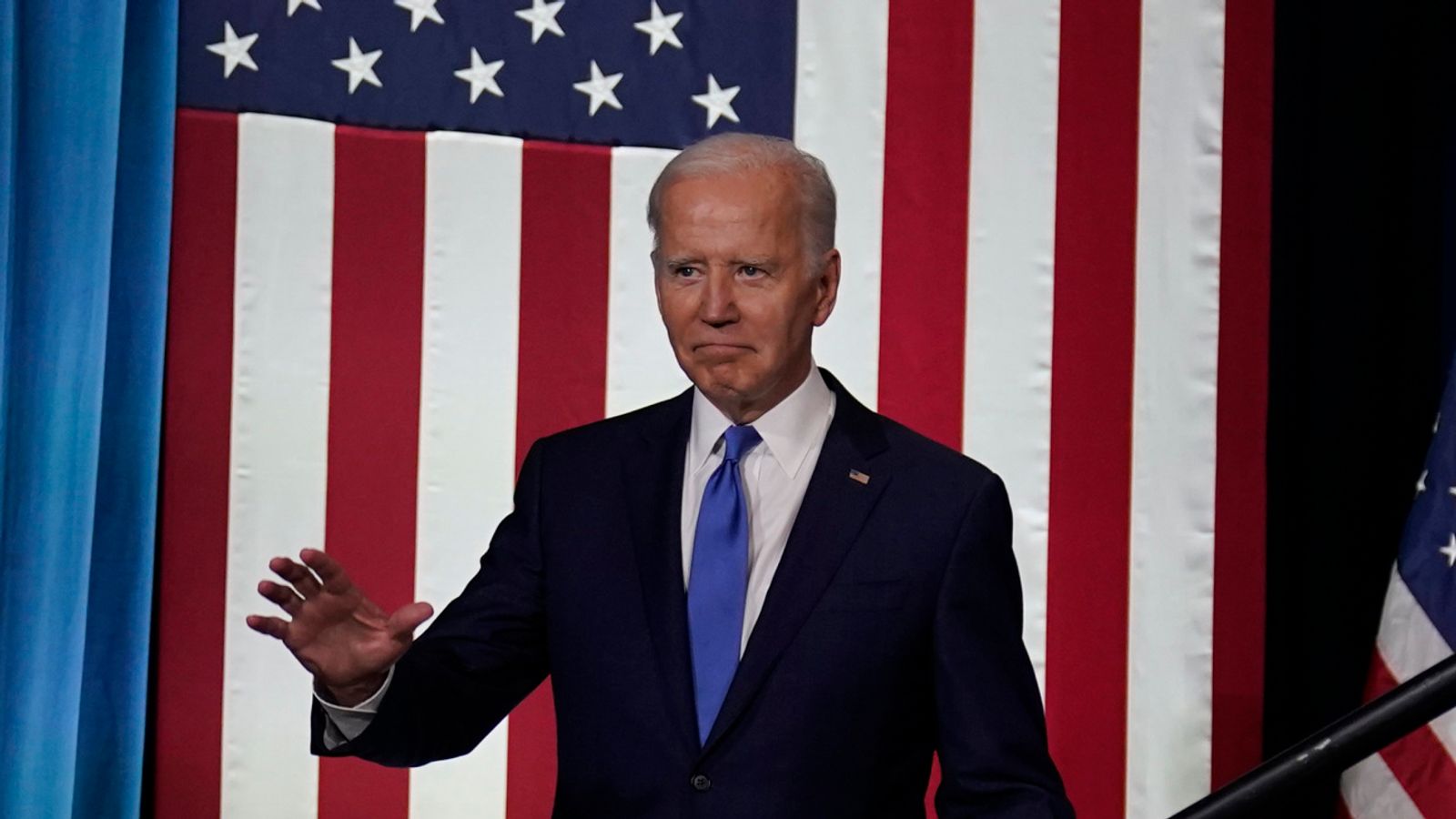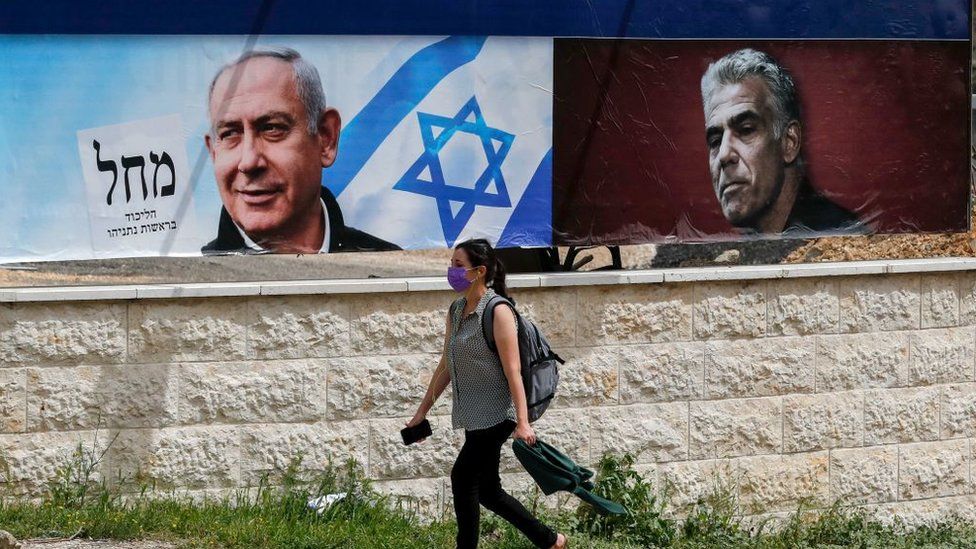1. Anger over Kherson 'expulsions' amid caution over Russian 'withdrawal'
Ukraine has said it "strongly condemns" what it calls the "expulsions" of residents from the regions around Kherson and Zaporizhzhia, accusing Moscow of carrying out "forced mass displacement".
"The Russian occupation administration has begun forced mass displacement of residents" of the Kherson region, especially Skadovsk and Kakhovka, to Crimea or to Russia, the Ukrainian Foreign Ministry said on Thursday.
Ukrainian officials and Western analysts remained cautious about signs that Russia may be abandoning the area.
A Russian-installed occupation official in southern Ukraine said on Thursday Moscow was likely to pull its troops from the west bank of the Dnipro River, signalling a huge retreat that, if confirmed, would be a major turning point in the war.
Kyiv said it was still fighting in the area and was wary that Moscow could be setting a trap by feigning a pull-out.
The capital of the Kherson region is the only major city Russia has captured intact since its invasion in February. It also includes one side of a huge dam across the Dnipro which controls the water supply to irrigate Russian-occupied Crimea.
US Defence Secretary Lloyd Austin said on Thursday that Ukrainian forces could retake Kherson from Russian troops, in what would be a major defeat for Moscow.
"On the issue of whether the Ukrainians can take the remaining territory on the west side of the Dnipro river and in Kherson, I certainly believe that they have the capability to do that," Austin told a news conference at the Pentagon.
"Most importantly, the Ukrainians believe they have the capability to do that. We have seen them engage in a very methodical but effective effort to take back their sovereign territory."
2. 'No sign of undeclared nuclear activity', says UN watchdog
The United Nations' nuclear watchdog says it has found no signs of undeclared activities at sites in Ukraine that Russia alleged were being used to prepare a so-called "dirty bomb".
The International Atomic Energy Agency (IAEA) said its inspectors had been "given unfettered access" to the locations in Kyiv, Zhovti Kody and Dnipro.
"Based on the evaluation of the results available to date and the information provided by Ukraine, the Agency did not find any indications of undeclared nuclear activities and materials at the locations," the IAEA said in a statement.
The inspectors also collected environmental samples for analysis that can shed light on past and current activities related to the handling of nuclear materials, the statement said.
"Our technical and scientific evaluation of the results we have so far did not show any sign of undeclared nuclear activities and materials at these three locations," said IAEA Director General Rafael Mariano Grossi.
His team would report on the sampling results as soon as popssible, he added, saying the IAEA was ready to conduct further verifications.
Inspectors were dispatched rapidly despite "challenging circumstances" posed by the conflict, Grossi said.
Ukraine's Foreign Minister Dmytro Kuleba tweeted his gratitude for the watchdog's "excellent and prompt cooperation which helped counter Russian falsehoods. Russia has confirmed its status of the world’s top liar."
Vladimir Putin and other senior figures in Russia alleged — without providing evidence — that Ukraine was manufacturing an explosive device which can scatter radioactive material across a large area.
Western countries have called Moscow’s claims “transparently false", while Ukrainian officials say Russia is seeking justification for escalating hostilities.
3. Russian top brass met to discuss using tactical nuclear weapons in Ukraine, US claims
Top Russian military brass held talks on when and how the Kremlin might use a tactical nuclear weapon in Ukraine, multiple US outlets have reported, causing consternation amongst Kyiv's western allies.
It is unclear whether Russian President Vladimir Putin participated in the discussions.
Washington has "grown increasingly concerned" about a potential Russian nuclear strike on Ukraine, the White House stated.
"We still have not seen any indication that the Russians are making preparations for such use ... but this is all deeply concerning to us," John Kirby, a spokesman for the National Security Council, said on Wednesday.
"We have grown increasingly concerned about the potential as these months have gone on," Kirby added.
Putin recently denied having any intentions of using nuclear weapons in Ukraine but described the conflict as part of alleged efforts by the West to secure its global domination.
Speaking in late October, Putin said it is pointless for Russia to strike Ukraine with nuclear weapons.
Putin said an earlier warning of his readiness to use "all means available to protect Russia" did not amount to nuclear sabre-rattling but was merely a response to Western statements about their possible use of nuclear weapons.
"We have maintained, I believe, an appropriate level of concern about the potential use of weapons of mass destruction in Ukraine to include nuclear weapons," Kirby told reporters
In recent weeks, Moscow has amped up its claims that Kyiv is preparing a nuclear "dirty bomb" attack, with Defence Minister Sergei Shoigu said to have made calls to his western counterparts to discuss the issue.
The move was widely seen by analysts as a possible means of distraction while the Kremlin prepared its own false flag operation.
Claims that Russian troops were conducting "secret construction" at the Zaporizhzhia power plant in Ukraine -- Europe's largest atomic energy facility -- further exacerbated fears of nuclear foul play.
4. Moscow and Washington continue to trade barbs over alleged bioweapons
Meanwhile, the UN Security Council overwhelmingly rejected Russia’s attempt to establish a commission to investigate its unfounded claims that Ukraine and the US are carrying out “military biological” activities that violate the convention prohibiting biological weapons.
Russia only received support from China in the Wednesday vote on its resolution, with France, the UK, and the US voting “no" and the 10 other council nations abstaining.
The 2-3-10 vote reflected the council’s continuing opposition and scepticism about Russia’s actions since its full-scale invasion of Ukraine on 24 February.
The council has been paralysed from taking any action against Russia's military offensive because of Moscow's veto power.
Russia’s UN Ambassador Vassily Nebenzya accused Washington of conducting work in Ukraine with deadly pathogens — including cholera, plague, anthrax, and influenza.
He said documents and evidence recovered by Russian authorities suggested a military application.
His US counterpart Linda Thomas-Greenfield responded that Russia’s claims are “absurd for many reasons, including because such species, even if they could be weaponised, would pose as much a threat to the European continent and Ukraine itself as they would to any other country.”
Russia’s initial allegation of secret American biological warfare labs in Ukraine in March has been disputed by independent scientists, Ukrainian leaders, and officials at the White House and Pentagon.
Ukraine does have a network of biological labs that have received funding and research support from the US. They are owned and operated by Ukraine and are part of an initiative called the Biological Threat Reduction Programme that aims to reduce the likelihood of deadly outbreaks, whether natural or manmade.
The US efforts date back to work in the 1990s to dismantle the former Soviet Union’s program for weapons of mass destruction.
However, the Kremlin's unfounded claims of biological weapons being developed in Ukraine -- used as one of the pretexts for the invasion -- have taken root online with various conspiracy theory groups, including QAnon.
5. Several grain ships leave Ukrainian Black Sea ports
Kyiv has confirmed that seven ships carrying grain and agricultural products left Black Sea ports on Thursday.
The vessels were loaded with 290,000 tonnes of food products and were headed towards European and Asian countries, the infrastructure ministry said.
It comes after Russia resumed its participation in a Turkish and UN-brokered deal aimed at delivering Ukrainian produce to global markets.
Moscow has urged the United Nations to help fulfil the parts of the deal and "remove obstacles" to ease Russia's food and fertiliser exports.
"We have once again called on the United Nations Secretary-General to ensure that he fulfils the obligations he agreed to through his own initiative," foreign minister Sergei Lavrov said on Thursday.
Moscow suspended its participation in the grain deal on Saturday after a drone attack on its fleet based in the Sevastopol harbour in annexed Crimea.
But Russia performed a U-turn on the deal after saying it had received "written guarantees" from Kyiv that the safe humanitarian corridor in the Black Sea would be demilitarised.
Kyiv has stated that it has not offered "any new commitments" to Russia beyond the agreed deal.
Ukrainian President Volodymyr Zelenskyy said the abrupt move showed "both the failure of Russian aggression and how strong we are when we remain united."
Around 9.7 million tonnes of agricultural products have already been exported from Ukraine under the July deal.
Russia has not yet decided whether or not to endorse an extension of the Ukrainian grain deal that expires in just over two weeks.
"Before deciding to continue, it will be necessary to make an assessment," Kremlin spokesman Dmitry Peskov warned.
6. War has displaced more than 14 million Ukrainians, says UN
Russia’s invasion of Ukraine has driven around 14 million Ukrainians from their homes, the UN High Commissioner for Refugees said on Wednesday.
Filippo Grandi told the UN Security Council that the displacement of civilians was the "fastest, largest [...] witnessed in decades".
Humanitarian organisations have “dramatically scaled up their response,” he said, “but much more must be done, starting with an end to this senseless war.”
Ukrainians are about to face “one of the world’s harshest winters in extremely difficult circumstances,” including the continuing destruction of civilian infrastructure that is “quickly making the humanitarian response look like a drop in the ocean of needs.”
The displacement of Ukrainians means the number of refugees and displaced people worldwide has increased to more than 103 million, Grandi added.
On the ground, clashes continued on Wednesday with four civilian deaths reported in the eastern Donetsk region and another in Kharkiv.
The head of Zaporizhzhia wrote on Telegram that the Russian army was also attacking the area around the town and Europe's largest nuclear power plant.
The Zaporizhzhia facility was once again disconnected from the power grid after Russian shelling damaged the remaining high-voltage lines, Ukraine nuclear firm Energoatom said.
Russia carried out a new wave of massive strikes on critical Ukrainian infrastructure on Monday, causing water and electricity supplies to be cut off in the capital, Kyiv.
Zelenskyy said the Russian strikes had damaged 40% of Ukraine's energy facilities, forcing the country to halt exports to the EU, where electricity prices are soaring.
7. Russia and Ukraine free 214 in prisoner exchange
Russia and Ukraine on Thursday exchanged 214 captured service personnel in the latest of a series of prisoner swaps, many of the Ukrainians wounded survivors of a failed attempt to defend the city of Mariupol in April and May.
Russia's Defence Ministry said in a statement that Ukraine had released 107 Russian personnel, and that they would be transferred to Moscow for "the necessary medical and psychological assistance".
Andriy Yermak, the Ukrainian president's chief of staff, said Russia had released 107 Ukrainian fighters, including 74 who had defended the Azovstal steel works, scene of Ukraine's last stand in Mariupol.
"We managed to exchange seriously injured and bedridden (fighters) from Mariupol, from 'Azovstal', boys with shrapnel wounds to arms and legs, gunshot wounds to various parts of the body. There are people with amputated limbs and (those) who can't feel part of their face, (others) with infected wounds."
8. Antisemitism amplified by Russia's invasion of Ukraine — EU report
A European Union report has found that anti-semitism and disinformation had "flourished" online since the start of Russia's invasion in February.
The war has exacerbated online hate speech towards Jews that existed after the COVID-19 pandemic, according to the EU Fundamental Rights Agency (FRA).
The report found that the risk of misinformation and anti-semitism was fuelled by Moscow's "misuse" of the term Nazi.
"Jewish communities across Europe are deeply affected" by online hate, it added.
FRA director Michael O'Flaherty said on Thursday that anti-Semitism "remains a serious problem".
The Vienna-based organisation also stated that European countries are "poor" at recording antisemitic incidents, as some nations do not collect statistics.
Adblock test (Why?)
https://news.google.com/__i/rss/rd/articles/CBMifmh0dHBzOi8vd3d3LmV1cm9uZXdzLmNvbS8yMDIyLzExLzAzL3VrcmFpbmUtd2FyLXJ1c3NpYW4tdG9wLWJyYXNzLW1ldC10by1kaXNjdXNzLXVzaW5nLXRhY3RpY2FsLW51Y2xlYXItd2VhcG9ucy1pbi11a3JhaW5lLXVzLdIBAA?oc=5
2022-11-03 19:52:30Z
1639770046

